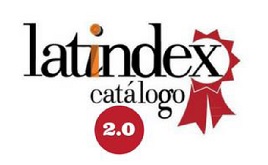Climate impact disclosures on financial reporting: Responding to stakeholder demands
DOI:
https://doi.org/10.53641/junta.v7i1.128Keywords:
climate, risks, opportunities, accounting system, financial informationAbstract
In recent years, the demand for information on climate change and its financial effects has grown among the main stakeholders in financial information. The focus was on whether this risk could affect an entity's ability to generate cash flows in the short, medium and long term. It was considered necessary to understand how organizations are affected by climate risk. That is why the objective of this research work is to determine whether the risks related to climate aspects with a financial effect can be measured and revealed using tools typical of a properly designed accounting system. A critical bibliographic analysis was taken as a basis to carry out analysis, comparisons and deductions that provide scientific rigor to the research. In order to identify climate-related risks and opportunities, the possible impact on decision-making based on information for this purpose is analyzed. Measuring and revealing information about actions and impacts related to climate change is an objective that can only be achieved with the contribution to Accounting of an accounting system model based on climate variables with an effect on the perception and understanding of the accounting message.
Downloads
References
Arias, G. (2023, abril). El cambio climático y su impacto en los estados financieros. El Dinero.
Carrizo, G. (2013). Sistemas Contables de Gestión Ambiental. Verificación independiente de informes socio ambientales, ejemplos de aplicación en informes de GEI. En L.F de García (Ed.), Documentos de trabajo de Contabilidad social (pp.142- 163). UBA.
Ciarleglio, A. (2023). Las normas NIIF sobre revelaciones de sostenibilidad. Newsletter de Contador Público. (2023, diciembre). Facultad de Negocios. Universidad de Palermo.
Datoo (2024). Lo que hay que saber sobre el ISSB y las NIIF. Datoo.
Guevara Zabaleta, R. (2023). NIIF relacionadas con la sostenibilidad y el riesgo climático: implicancias para las empresas Latinoamericanas. Ernst & Young Latinoamérica. (2023, noviembre).
Gutiérrez N. & Goenaga, A. (2022). Revelaciones sobre las cuestiones climáticas en la información financiera bajo NIIF. Enfoques, 4, pp. 3-23.
International Accounting Standards Board (1998). Norma Internacional de Contabilidad 16. Propiedades, Planta y Equipo (NIC 16).
International Accounting Standards Board (1999). Norma Internacional de Contabilidad 37. (NIIF 37). Provisiones, Pasivos contingentes y Activos contingentes.
International Accounting Standards Board (2004). Norma Internacional de Contabilidad 36. (NIC 36). Deterioro del valor de los activos.
International Accounting Standards Board (2005). Norma Internacional de Contabilidad 2 (NIC 2). Inventarios.
International Accounting Standards Board (2009). Norma Internacional de Contabilidad 1 (NIIF 1). Presentación de Estados Financieros.
International Accounting Standards Board (2018). Norma Internacional de Información Financiera 9. Instrumentos Financieros.
International Sustainability Standards Board (2023a). Norma NIIF S1.de Información a Revelar sobre Sostenibilidad. Requerimientos Generales para la Información Financiera a Revelar relacionada con la Sostenibilidad.
International Sustainability Standards Board (2023b). Norma NIIF S2 Información a revelar relacionada con el clima.
Mantilla, S. (2015). ̈Estándares Normas Internacionales de Información Financiera IFRS / NIIF ̈. ECOE Ediciones.
Mejía Soto, E., Montes Salazar, C. & Aranga Mediana, D. (2012). Aproximación al sistema de contabilidad ambiental y económica integrada SCAEI de la ONU. Sinopsis, pp. 18-30.
Panario Centeno, M. & García Fronti, I (2023). Información financiera de la sostenibilidad. Empresa. ACDE Empresa.
PriceWaterhouseCoopers (2021). Revelaciones del efecto climático en los Estados Financieros. PWC.
Rodríguez de Ramírez, M. (2017). Gobierno Corporativo y revelaciones financieras sobre el ambiente. Propuesta del Grupo de Trabajo de la Junta de Estabilidad Financiera. Profesional y Empresarial. Tomo: XVIII.
Scavone, G. & Bursesi, N. (2019). Los efectos del cambio climático revelados en los estados financieros. Ciencia y Técnica Administrativa,18(4).
Downloads
Published
How to Cite
Issue
Section
License
Copyright (c) 2024 Graciela Scavone, Marisa Marchesano

This work is licensed under a Creative Commons Attribution 4.0 International License.








